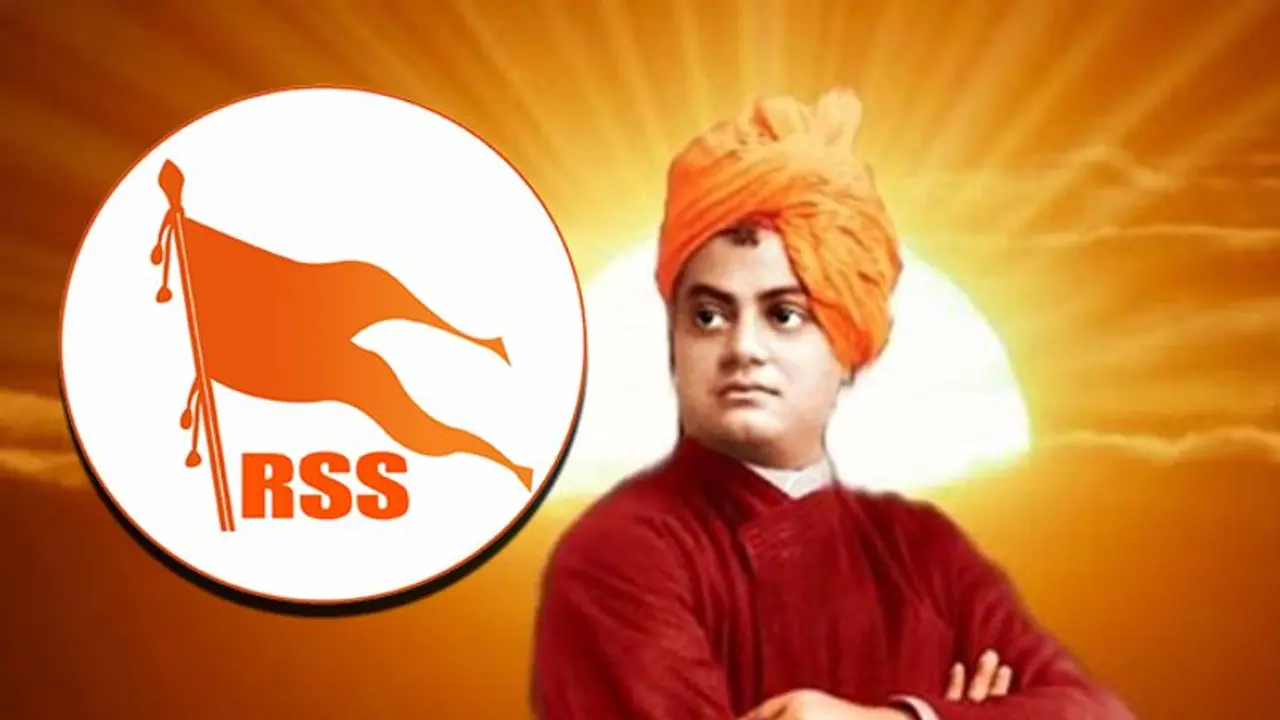It was Swami Vivekananda who gave the new definition of Hindutva at the Parliament of World Religions in 1893, a book on RSS and its roadmaps for 21st Century, claims
Bengaluru: Swami Vivekananda became a household name in the year 1893 as he delivered the famous Chicago speech at the Parliament of World Religions.
In the formulation of its principles, the Rashtriya Swayamsevak Sangh (RSS) has been inspired and influenced by Vivekananda’s speech to a great extent.
In the book – The RSS roadmaps for the 21st Century – an exclusive chapter has been dedicated to how the word Hindutva has been designed.
Also watch: Book tracing RSS's origins released
The chapter adds that it was Vivekananda who took the message of his guru Sri Ramakrishna Paramahamsa to the developed world.
The message of his guru was ‘Jata mat tata path’ or in English ‘as many faiths so many paths.’
Sri Ramakrishna was a saint who lived in West Bengal (1836-1886). He spread the message of the harmony of religions and also that the aim of life is God realisation.
The Chicago speech, the book adds was a high point of Hindutva and will always be. What stands out in the speech is how the monk addressed people of different religions and faiths as his own brethren, thereby looking upon the whole world as one family.
Also Read: Hindutva is 'sanatan'
It is this oneness of the world that the RSS has imbibed in true spirit.
The book also makes a mention of several other saints like Swami Dayanand Saraswati and Swami Shraddhananda Saraswati.
These monks who had not been tied down by their earthly encumbrances but had embraced the whole world as their own.
Contrary to the liberals’ view of Hindutva as an exclusionary principle, scholars of Hindutva, the book adds, undertook several exertions to end the evil of untouchability and other forms of caste-based discriminations.
The book also mentions Sree Narayana Guru who set a model of reform and social justice in Kerala, a state whose caste-based prejudices were severe and had appalled Swami Vivekananda himself.
The book also pays tributes to Dr Ambedkar for taking the stoutest action caste discrimination.
